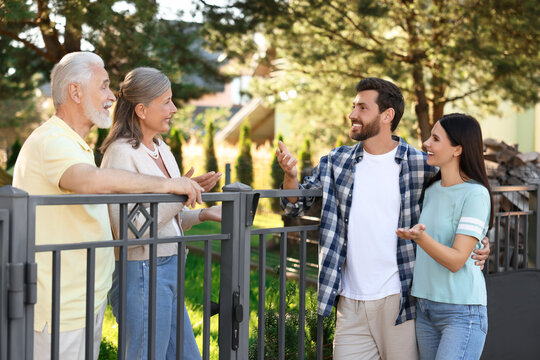Hey there, fellow home enthusiasts! Irene here, your go-to gal for all things real estate on AllInfoHome.com. Today, we're diving into some intriguing waters as we explore the financial ripple effects of former President Trump's legal battles in New York.
The Precedent of Trump's Legal Battles
Enter Grant Cardone, the real estate guru with a knack for predicting market trends. He's sounding the alarm bells, warning us about the potential havoc these legal tussles could wreak on the Big Apple's finances. From property tax woes to business decisions, Cardone's insights shed light on how the real estate world is responding to the drama.
Let's break down the legal rollercoaster that is Trump's $355 million fraud trial in a way that won't make your head spin. This trial stemmed from allegations that Trump defrauded investors in a real estate deal, a plot twist even Hollywood would find juicy. Now, $355 million is no small change. It's the kind of money that could buy you a small country or maybe a private island or two. But it’s Trump we are talking about, it's just another day in the courtroom drama.
%20%7D%7D)
As for the impact on New York City's financial landscape, think of it as a game of financial Jenga. When a big player like Trump faces a hefty legal blow, it sends ripples through the city's economic landscape. Investors might get a bit jittery, and the market might do a little dance of uncertainty.
But fear not, because in the world of legal battles, time moves slower than a sloth on a hot day. It's like waiting for your pizza delivery during a blizzard – you know it's coming, but it's gonna take a while. So, while the repercussions might seem daunting, there's also time for the city to bounce back and for investors to regain their confidence.
Decline in Property Tax Collections
Cardone stated that every year, the city is bringing in less money from property taxes. Now, property taxes are like the rent you pay to the city for owning a piece of land or a building. It's how the city funds all sorts of important stuff like schools, roads, and parks.
When property tax collections drop, it's like your boss telling you that your paycheck is going to be smaller this month. Not fun, right? Well, it's the same deal for the city – less money coming in means less cash to spend on things that make the city tick.
Now, what does this mean for New Yorkers? Well, imagine if your favorite park suddenly had fewer benches, or your kid's school couldn't afford new textbooks. That's the kind of stuff that happens when the city's budget shrinks.
But why is this happening? It's like a game of financial dominoes. Maybe fewer people are buying homes or businesses are closing up shop, which means less property to tax. Or maybe property values are dropping, so even if the tax rate stays the same, the city isn't making as much dough.
Either way, it's a headache for city officials trying to balance the budget. They might have to make tough choices, like cutting spending or raising taxes elsewhere, which nobody likes.
In the end, a decline in property tax collections isn't just a bunch of numbers on a spreadsheet – it's less money for the things that make New York City great. So, next time you hear about property taxes, remember, that it's not just about money – it's about the parks you love and the schools your kids attend.
Business Response: Cardone Capital's Decision
Let's dive into Cardone Capital's recent decision to pump the brakes on investments and operations in New York and shift their focus to Florida.
So, Cardone dropped the bombshell that they're hitting pause on their New York ventures. It's like telling your friends you're canceling your trip to New York City and heading to Miami instead. Why? Well, Cardone probably looked at the numbers and decided that the Big Apple wasn't as juicy an investment as they once thought.
Instead of pouring their cash into the concrete jungle, Cardone is packing their bags and heading south to the Sunshine State. They're taking all those dollars they had earmarked for New York and dropping them into Florida's real estate market.

Now, why Florida? Well, imagine if you had to choose between a snowstorm and a day at the beach – pretty easy choice, right? Florida's warm climate, booming economy, and growing population make it an attractive spot for investors like Cardone.
But Cardone's move isn't just about palm trees and sandy beaches. It's a sign of the times, reflecting broader investor sentiment. When a big player like Cardone shifts gears, other investors take notice. It's like when your favorite influencer starts wearing a new brand – suddenly, everyone wants a piece of the action.
So, what does this mean for New York? Well, it's like losing a star player from your team – not great for morale. It might make other investors think twice about sinking their money into the city. But hey, New York is a resilient town. It's bounced back from worse.
The Cardone's decision is a reminder that in the world of business, change is the only constant. Whether it's chasing sunsets in Florida or skyscrapers in New York, investors are always on the move, searching for the next big opportunity.
Civil Implications for Financial Entities
From Cardone's viewpoint, their decisions can send ripples through the financial world, especially for big players like pension funds, lenders, and real estate investment trusts (REITs). Imagine Cardone as the conductor of a symphony, and these entities are the instruments playing along. When Cardone changes its tune, it affects the whole orchestra.
For pension funds, Cardone's move might mean they need to adjust their investments to compensate for potential losses or changes in returns. It's like recalibrating your GPS when you take a wrong turn – you need to find a new route to reach your destination.
Lenders might feel the pinch too. If Cardone's shift leads to decreased property values or increased loan defaults, lenders could find themselves in a sticky situation. It's like lending money to your friend to start a business, only to find out they're closing up shop – suddenly, your investment doesn't look so hot.
As for REITs, they might need to rethink their strategies in light of Cardone's move. If New York's real estate market takes a hit, REITs might need to diversify their portfolios or focus on other markets to stay afloat. It's like a chef changing their menu when a key ingredient goes out of season – you need to adapt to keep your customers satisfied.

Now, let's talk about the potential consequences of property values and loan defaults in New York. If Cardone's decision leads to a mass exodus of investors or a downturn in the real estate market, property values could plummet like a lead balloon. And when property values drop, loan defaults tend to rise, creating a vicious cycle of financial woes.
In the end, Cardone's actions have far-reaching implications for financial entities and the stability of New York's real estate market. It's like a game of financial dominoes – one move can set off a chain reaction of consequences.
Related: Quietly Exiting: Mark Zuckerberg's Bay Area Real Estate Sales
Concerns about Government Overreach
Cardone's apprehensions are like a red flag waving in the wind, signaling potential dangers ahead. He's worried that legal actions against Trump might not just be about justice but could also be influenced by politics. It's like playing a game of poker where the cards are stacked against you – no matter how good your hand is, you can't shake the feeling that someone's cheating.
This fear of government overreach isn't just about Trump – it's about the broader implications for private property investments. Imagine you're building a sandcastle on the beach, and suddenly, a giant wave comes crashing down, washing away all your hard work. That's what it feels like when the government oversteps its bounds – your investments are at risk of being swept away.

His concerns highlight a fundamental fear among investors: that government actions could infringe upon their rights and threaten their investments. It's like walking a tightrope – one wrong step, and you could lose everything.
When the government wields its power inappropriately, it creates a chilling effect on private investment. It's like trying to plant seeds in frozen ground – no matter how hard you try, nothing grows. Investors become wary, holding back on investments out of fear of government interference. When investors lose faith in the system, it undermines the foundation of our economy. It's like pulling one thread from a sweater – soon, the whole thing unravels.
Trump's Deadline and Potential Asset Seizure
Trump is facing a nail-biting deadline to post a whopping $454 million bond. Think of it like a high-stakes game of poker where Trump has to put up some serious cash to stay in the game. This bond is meant to secure the $355 million judgment against him in a fraud trial, plus interest and penalties, and to cover potential legal fees if he loses his appeal.
Now, what happens if Trump misses the deadline? Well, according to New York Attorney General Letitia James, it's like facing the wrath of a legal tsunami. She's warned that failure to pony up the cash could result in the seizure of Trump's assets. Imagine a repo man showing up at Trump Tower, ready to haul away everything from the gold-plated toilets to the gilded chandeliers.
But the consequences don't stop there. Letitia James has also hinted at potential criminal charges if Trump doesn't comply with the court's orders. It's like adding insult to injury – not only could Trump lose his prized possessions, but he could also end up in handcuffs.
This isn't just about Trump's ego – it's about the rule of law. When someone flouts a court order, it undermines the integrity of the legal system. It's like a game of Monopoly where one player refuses to follow the rules – pretty soon, nobody wants to play anymore.
Conclusion
And there you have it, folks! We've journeyed through the twists and turns of Trump's legal battles with the guidance of Grant Cardone. While the future may seem uncertain, Cardone's insights have illuminated the path ahead for us home enthusiasts. From the potential impact on property taxes to the cautious business decisions being made, we've gained a deeper understanding of the real estate landscape amidst the legal drama. So, as we bid adieu to this enlightening adventure, let's remember to keep our eyes peeled for further developments! Until next time, happy house hunting, my fellow homebodies!
Source: Real estate investor warns Trump's NY case will 'wreak financial havoc' on the city | FOX




